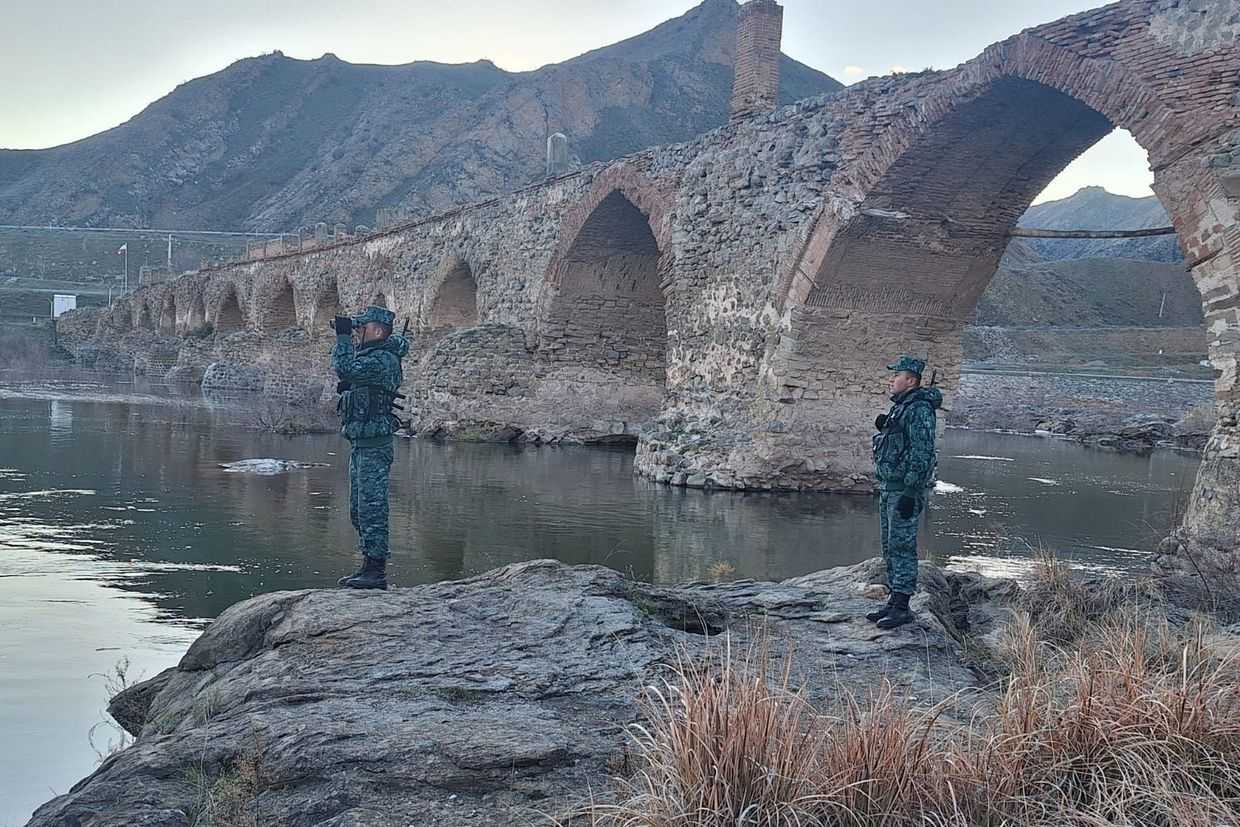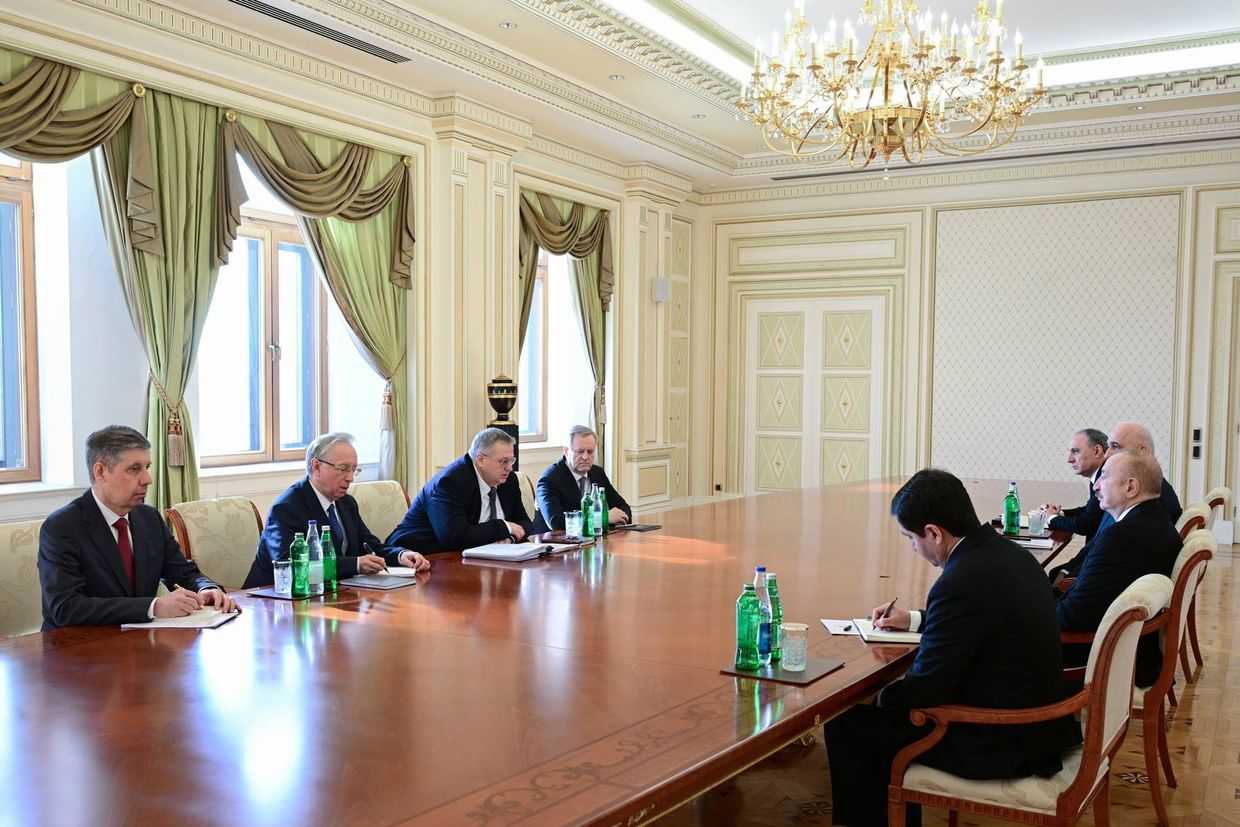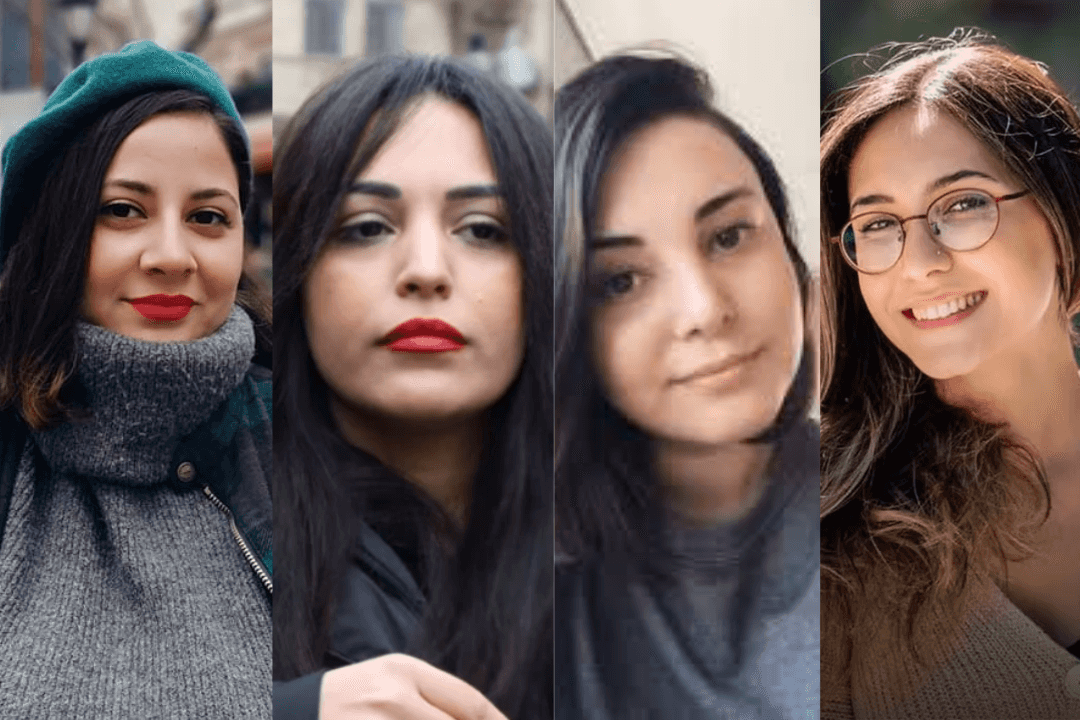
Azerbaijan’s arrest of researcher and writer Bahruz Samadov has led to widespread outcry, and speculation about the implications for the prospect of peace or further war with Armenia.
On the evening of 21 August, Azerbaijani social media filled with posts calling for any information on Bahruz Samadov’s whereabouts. Samadov was visiting Azerbaijan while on holiday from his studies, and had gone missing that afternoon, shortly before he was expected to meet a friend.
After two days of silence, official confirmation came through: Samadov had been detained, with the Sabail District Court in Baku that afternoon confirming that Samadov was being charged with treason. If found guilty, he faces between 12–20 years in prison or a life sentence.
Up until his arrest, Samadov had been studying for a PhD at Charles University in Prague, so was based outside of Azerbaijan. While not publicly associated with any of the country’s major opposition groups, Samadov has written for OC Media and other media outlets about authoritarianism in Azerbaijan and peace with Armenia.
Following his arrest, the Azerbaijani government apprehended two other OC Media contributors and peace advocates — Samad Shikhi and Javid Agha — as they were trying to leave the country.
Both Shikhi and Agha were released shortly after, stating that they were brought in to testify against Samadov, with Agha later adding that he had received an indefinite travel ban.
As warnings of the threat of renewed conflict accumulate in parallel to intensifying peace talks with Armenia, some warn that Samadov’s arrest marks a new turn in Azerbaijan’s attitudes towards those who advocate for peace with Armenia.
‘He thought that he was not a threat’
Rustam Ismayilbayli, a friend of Samadov’s, tells OC Media that his friend had visited Azerbaijan several times since beginning his studies in Prague in 2019, despite being frequently targeted by pro-government media and ‘government trolls’ after the Second Nagorno-Karabakh War of 2020.
‘Government trolls and government media try to humiliate Bahruz through his tweets’, says Ismayilbayli. ‘[They would say] he used the word Stepanakert, he used the word Artsakh, he talked to some Armenians, he wrote one article which says Azerbaijan did ethnic cleansing in [Nagorno-Karabakh] or Azerbaijan occupied Stepanakert, things like that.’
He adds that Samadov repeatedly told his friends not to worry about the prospect of his arrest in Azerbaijan, as he had ‘already visited Azerbaijan 20 times’ in the last four years.
‘He thought that he was not a threat to the Azerbaijani government. He doesn’t have that much support in the Azerbaijani public’, says Ismayibayli. He adds that Samadov was not affiliated with any organisations or political parties in the country, and was not calling for the government’s resignation.
Lala Darchinova, an Azerbaijani researcher and activist, believes that through such arrests, Azerbaijan seeks to ‘establish control’ over independent peacebuilding which brings Armenian and Azerbaijani activists, journalists, and academics together because it poses a ‘danger to’ Baku.
‘It’s very paradoxical that there are peace negotiations going on or calls from Azerbaijan to sign a peace agreement, but at the same time, they are silencing the people in the country who are genuinely trying to build some form of a peace or not hating or dehumanising Armenians’, she says. ‘It just proves to me that Azerbaijan is not sincere in their intentions about the peace and negotiations.’
[Read more: Azerbaijan refuses to sign peace treaty based on already agreed points]
Darchinova adds that prior to Azerbaijan beginning its renewed crackdown on media and activism in November 2023, civil society, independent media, and peace advocates operated under the assumption that they had some leeway to carry out their activities.
‘But it’s obvious that they are crushing it down. They don’t need it and they’re not interested in this’, she says. ‘The same with peacebuilding; they are not interested in things that they cannot control because it’s a risk for them. In their understanding, it’s a risk to their power; to [Azerbaijani President Ilham] Aliyev’s power.’
Darchinova warns that she expects ‘interrogations, intimidations, and some arrests’ of others.
‘At least in relation to the case of Bahruz, people will be somehow approached, intimidated, or detained’, she says.
A monopoly on peace
Samadov’s arrest on charges of treason came as a surprise to many who initially believed he would face the drug charges often used against government critics.
His charging with treason was the second such charge to be levied against a researcher in recent months, after the authorities accused Igbal Abilov, an ethnic Talysh researcher, of arranging ‘secret negotiations and deals’ with Armenian academics via Skype.
Darchinova suggests that the authorities might have chosen to charge Samadov with treason in order to make Samadov ‘a villain in the eyes of everyone’ and to discourage public support.
‘If you say this person was researching authoritarianism in Azerbaijan, they might even sympathise with him, but if he is collaborating with Armenia, then no one sympathises with Bahruz, right?’
[Listen to The Caucasus Digest: Podcast | The Bahruz Samadov case]
Laurence Broers, an associate fellow at Chatham House’s Russia and Eurasia programme, also suggests that the charges pressed against Samadov are ‘qualitatively different’.
‘We’ve got this quite ironic situation where ostensibly Armenia and Azerbaijan are working on a peace treaty and are moving towards peace and the conflict is over — that’s the mantra’, he tells OC Media. ‘And yet, now we see that it is young scholars who are working on peace, working on Armenian–Azerbaijani relations who are being arrested and they’re not being arrested in Bahruz’s case on typical charges that relate to narcotics or to cash, but that relate to contacts with Armenians.’
Broers further suggests that an amnesty is less likely to be granted for treason charges, and highlights the similarities between Samadov’s arrest and the arrests of Layla and Arif Yunus in April 2014.
The couple faced a number of charges including tax evasion, fraud and forgery, and treason, with the latter charge relating to their work on promoting peace between Armenia and Azerbaijan. They were released over a year later and have lived in exile since.
Broers argues that Samadov’s arrest could leave peace advocates in Azerbaijan wondering whether their contact with Armenians ‘could be framed or reframed as treasonable’.
‘So of course there’s going to be a huge chilling effect, and what it means is that it’s only those people who are working within state structures, within state-approved or state-aligned structures that will feel the confidence to meet with Armenians’, he says. ‘This is also obviously a pathway to co-opting peacebuilding itself into an entirely regime-aligned direction.’
Why now?
The arrests come at a critical time for Azerbaijan: months before November’s COP29 summit in Baku, as peace talks with Armenia continue against a backdrop of ceasefire violation accusations.
While some have speculated that Azerbaijan’s crackdown on journalists, politicians, and peace advocates could be a prelude to a renewed escalation, others believe that it would not be in Azerbaijan’s interest to instigate an armed conflict with Armenia before the UN climate summit.
Broers says that while Armenia and Azerbaijan might sign an ‘extremely shallow framework agreement’ before COP29, such an agreement would be merely performative, and not actually resolve anything.
He notes that Baku has suggested that this conference will be a ‘COP of peace’.
‘But how can we take that seriously, when we see that those last scattered independent voices who were generating more critical perspectives on peace are being arrested?’ asks Broers. ‘Who’s going to want to participate in dialogue meetings now when they know that such contacts could be leveraged against them as evidence of treason?’
Broers adds that Azerbaijan appears ‘very reluctant’ to let go of the conflict with Armenia despite its statements to the contrary, due to the ‘affordances’ that the conflict provides. He says that as well as providing a central issue to mobilise people around, the conflict was seen by some as the first military victory that Azerbaijan had won ‘as a nation state’, prompting a ‘reluctance’ to move fully towards peace.
Ismayilbayli adds that he does not believe Samadov will be released before next year, with the best case scenario seeing him released into house arrest, similar to the Gubad Ibadoghlu case.
Ibadoghlu, a prominent government critic and anti-corruption campaigner, was arrested on 23 July 2023 on charges of production, acquisition, or sale of counterfeit money or securities committed by an organised group. He was later charged with the preparation, storage, or distribution of religious extremist materials. He was released into house arrest in April 2024.
Ismayilbayli said that he was not hopeful that his friend would not receive the same treatment, citing a lack of interest in cases such as Samadov’s or those of detained Azerbaijani journalists in the West.
Ismayilbayli says that domestic pressure was not enough to secure the release of Samadov and other government critics, and that it would ‘only be up to Western governments’ to pressure Azerbaijan into releasing them.
Ismayilbayli also warns that Samadov is likely being mistreated in detention, and notes that Samadov has been given very limited contact with his lawyer.
‘I know his conditions are very bad, they treat him very badly in prison. We already stated in public that he is not even allowed to sit during certain hours, [they make him] stand up, and he is not even allowed to read books’, says Ismayilbayli.
But he notes that Samadov appears, against the odds, to be ‘optimistic and positive’. He points to Samadov’s research into authoritarianism, and jokes that Samadov could be viewing his detention as a ‘scholarly experience’.
‘I hope he is doing well, but I don’t know if he has traumas, if he has been treated worse than we know’, Ismayilbayli says. ‘I don’t know, I hope he is doing well.’









